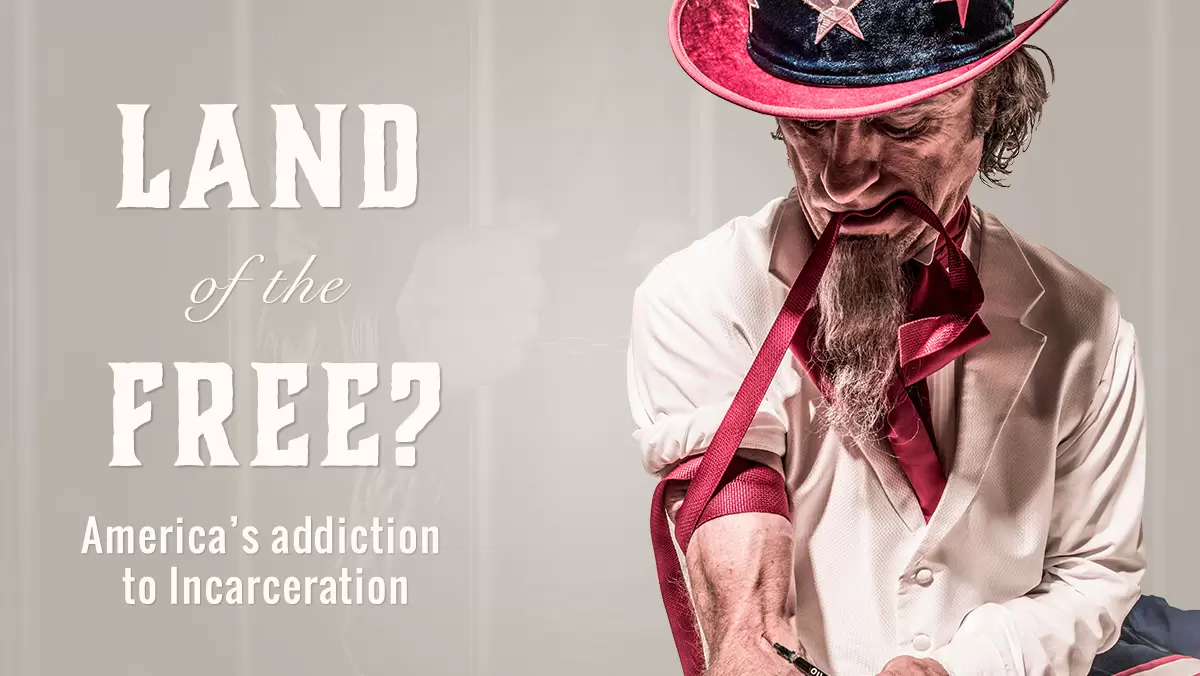
America is addicted. It is a non-stop compulsion. Lives are ruined by the millions. It marks people for life, if they can manage to escape. The drug? Incarceration. The United States of America incarcerates more people than any country in the world. Read that again. Yes, you read that right.
We rightly condemn communist countries like China and Cuba for their abuses. Their policies are considered brutal and contemptuous of freedom. They single out people they disapprove of and imprison them. We have higher rates of incarceration than those countries. China and Russia are considered extremely oppressive governments, yet their COMBINED incarceration rate is still lower than that of the USA.
People going into prison generally come out worse from the experience. Recidivism is rampant and almost inevitable.
When released, they are ill-equipped to adjust to life after prison. The false notions of rehabilitation and having paid one’s “debt to society” are belied by the fact the outside world continues to punish for life. It’s no wonder they return to prison. Even when people are eventually released, they face life-long struggles. They don’t qualify as formal “punishment”, but they are known as “collateral consequences”.
Long-lingering financial obligations hold back people after release. Their families are dragged down with them. Jobs for “ex-cons” are scarce and low-paying, so poverty is almost assured. Housing options are restricted. Social stigma remains strong after release. We punish people for life after conviction, so the imaginary “debt to society” can never be paid.
We make policy on flawed and disproven concepts. Consequences have been dire and abusive. The concept of “deterrent”, for example, is grossly inadequate and simply wrong. Deterrent is grounded on the belief that people will not engage in criminal conduct because they are aware of the prospect of punishment for said behavior. If it were true, our country’s mass incarceration tactic would have resulted in the lowest crime rate in the world BY FAR, and it hasn’t.
Crime is routinely viewed as immoral choices resulting in undesirable behaviors, a violation of personal responsibility which causes harm to others. It’s not that simple. In addition, many crimes require no one and nothing to be harmed, except for that harm caused by the government. People are not in a vacuum sealed off from every influence in society.
Human beings are not automatons reduced to nothing more than choosing between good and evil. Most prisoners have at least one mental health problem. Addiction to alcohol and drugs has led to many people being incarcerated. People of color are grossly overrepresented in prison populations, and there’s ample evidence of systemic racism at its core. Poverty and lower education levels are strongly correlated to prison populations. If a person has more than one of these characteristics, the chance of incarceration obviously increase.
We must choose to reduce prison populations and criminal punishment, in general. “Throwing the book” at “criminals” and “throwing away the key” simply does not work and only satisfies our most vindictive, hateful impulses. Meanwhile, we are destroying millions of lives directly and millions more indirectly. That is a characteristic of an oppressive country, not a free one.
We think of ourselves as freer than any other country. Not only is that not true itself, we suffer from issues we could readily address. We must face the underlying contributors to crime. Diverting funds from criminal punishment to serving people at higher risk of incarceration would be a far better policy. We lack only the decision to change.
Tags: Criminal justice, collateral consequences, Department of Justice, incarceration, incarcerating, incarcerated, prison, in prison, prisons, penetentiary, penetentiaries, crime, crime and punishment, long sentences, oppression, racial disparity, systemic racism, poverty, drug addiction, alcohol addiction, addiction, addict, addicts, substance abuse, mental illnes, mental health, mental retardation, public policy, crime rate, crime rates, deterrent effect, criminal punishment, low education, poor, racism, unfair sentencing, sentencing guidelines, land of the free, Bureau of Prisons, law enforcement